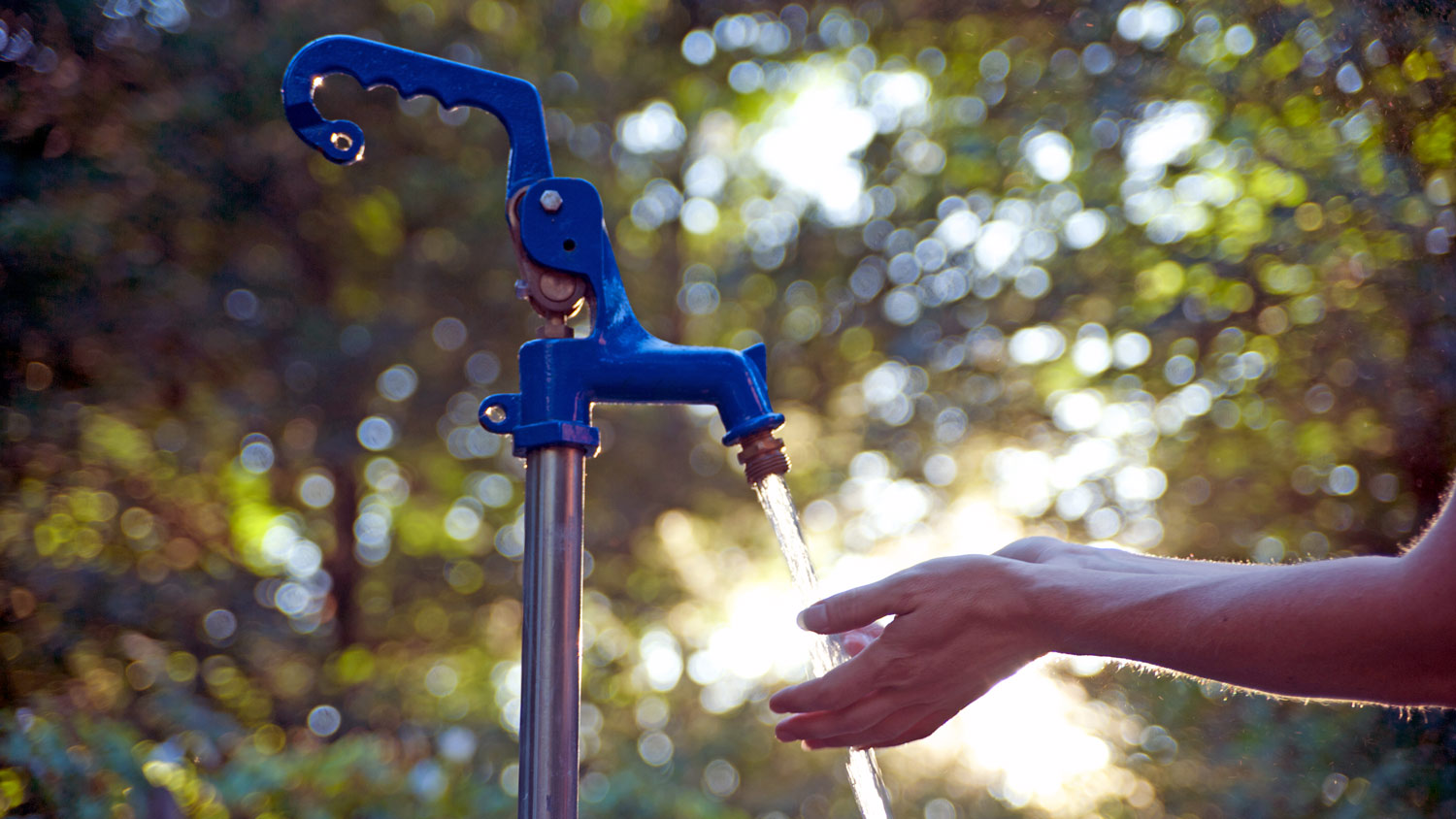
Discover how much well water treatment systems cost, including installation, maintenance, and tips to save. Get expert insights to plan your water system project.
Because scales are for reptiles, not your saucepans


Scale is caused by calcium buildup in hard water.
Stopping scale at the source is more effective than constantly descaling things.
Whole-house water filters are more effective at decreasing the rate of scale buildup than water softener systems.
Whole-house water filters cost $1,100 to $3,500.
Ever get perplexed and annoyed at the scaly white substance accumulating in your pots, coffee maker, shower tiles, and other surfaces? That’s called scale or limescale. Scale is caused by calcium buildup from hard water. While scale is relatively harmless, showering with hard water can dry out your skin and hair. Scrubbing your coffee maker with vinegar and hot water can make your coffee taste good again, but a whole-house water filter will remove a lot of scale from the equation.
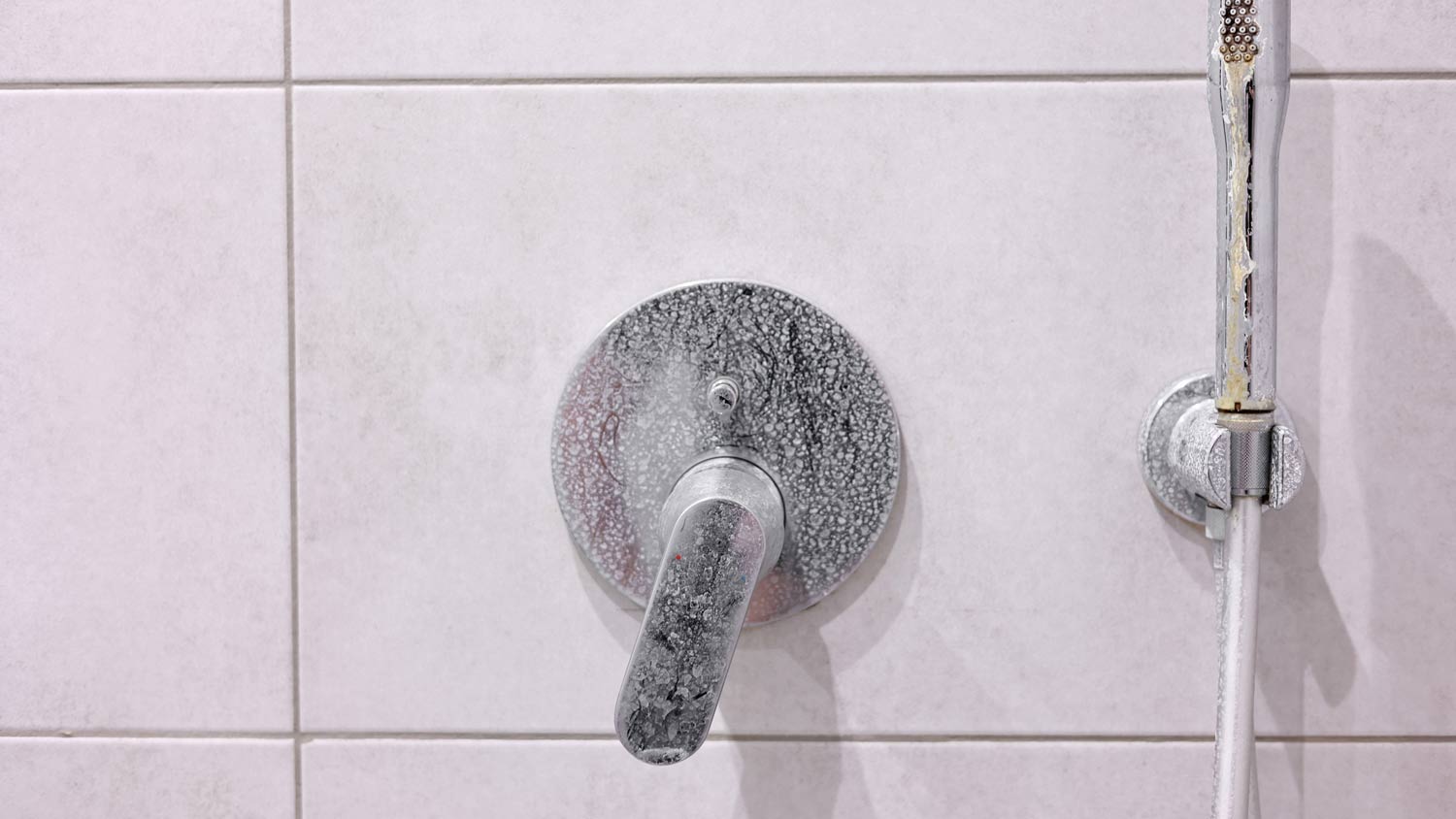
Scale is caused by high amounts of calcium and magnesium in tap water. It accumulates on cookware, appliances, and water fixtures like showerheads and sprinkler heads. Having some level of calcium and magnesium in the tap water is good for your bones and teeth, so filters won’t remove 100% of these particles. However, too much of a good thing can still be bad.
Showering regularly with hard water can cause dry skin and hair and make these problems worse if you already experience them. Scale accumulation also causes your appliances, like your dishwasher, to run less effectively, meaning you’ll need a way to stop the problem at the source. If the buildup gets to unsustainable levels, it can even block the pipes.
According to Angi customers, 36% of homeowners report strange tastes or odors in their home’s drinking water—from rotten egg or chemical smells to metallic or salty flavors. These signs could indicate plumbing corrosion, bacteria, or other water quality issues. Don’t ignore them: hire a pro who can diagnose the issue and protect your home’s water supply.
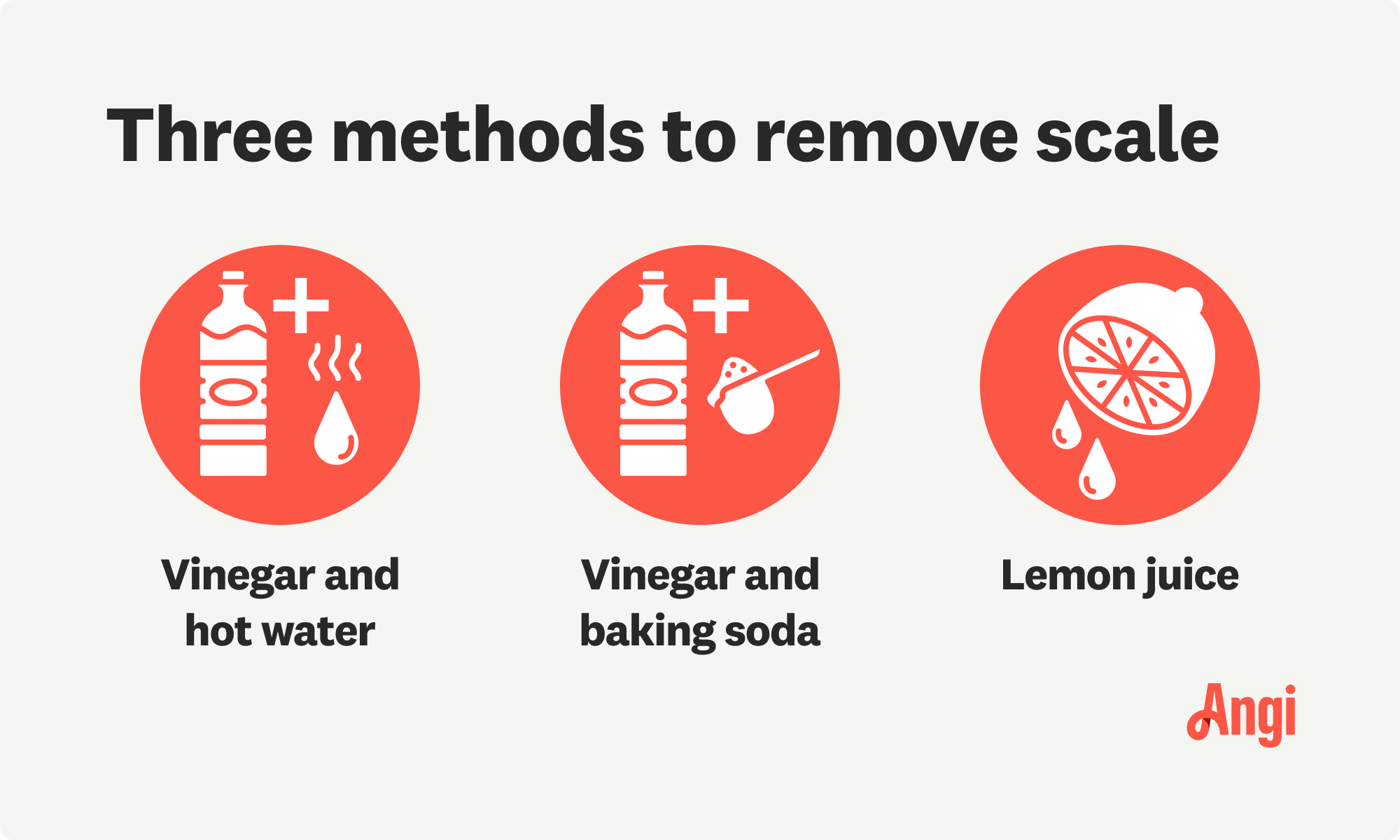
Many people mistake the white, spotty substance for a sign that they aren't cleaning hard enough or are using the wrong cleaners. If you’re furiously scrubbing and the scale just won’t come off, try using vinegar and hot water, which can descale your saucepans and coffee machines safely. Vinegar mixed with baking soda, as well as a lemon juice application, can also get some appliances out of a scaly jam.
Vinegar and hot water: Mix a 1:1 ratio in a spray bottle, spray it on problem areas, let it sit for a few minutes, and wipe it clean.
Vinegar and baking soda: Mix together until a thick paste forms, spread it over the area, let it sit for a few minutes, and scrub it clean.
Lemon juice: Spray the affected area with lemon juice or pour lemon juice over or in the area. Let it sit for up to 10 minutes, then wipe it away. Note: If you’re putting lemon juice in something like a kettle, make sure to rinse it thoroughly with warm, but not boiling, water after wiping.
However, these are just short-term fixes since you can't control how hard the water is where you live. A whole-house water filter will help you eliminate excessive scale buildup and spend less time cleaning.
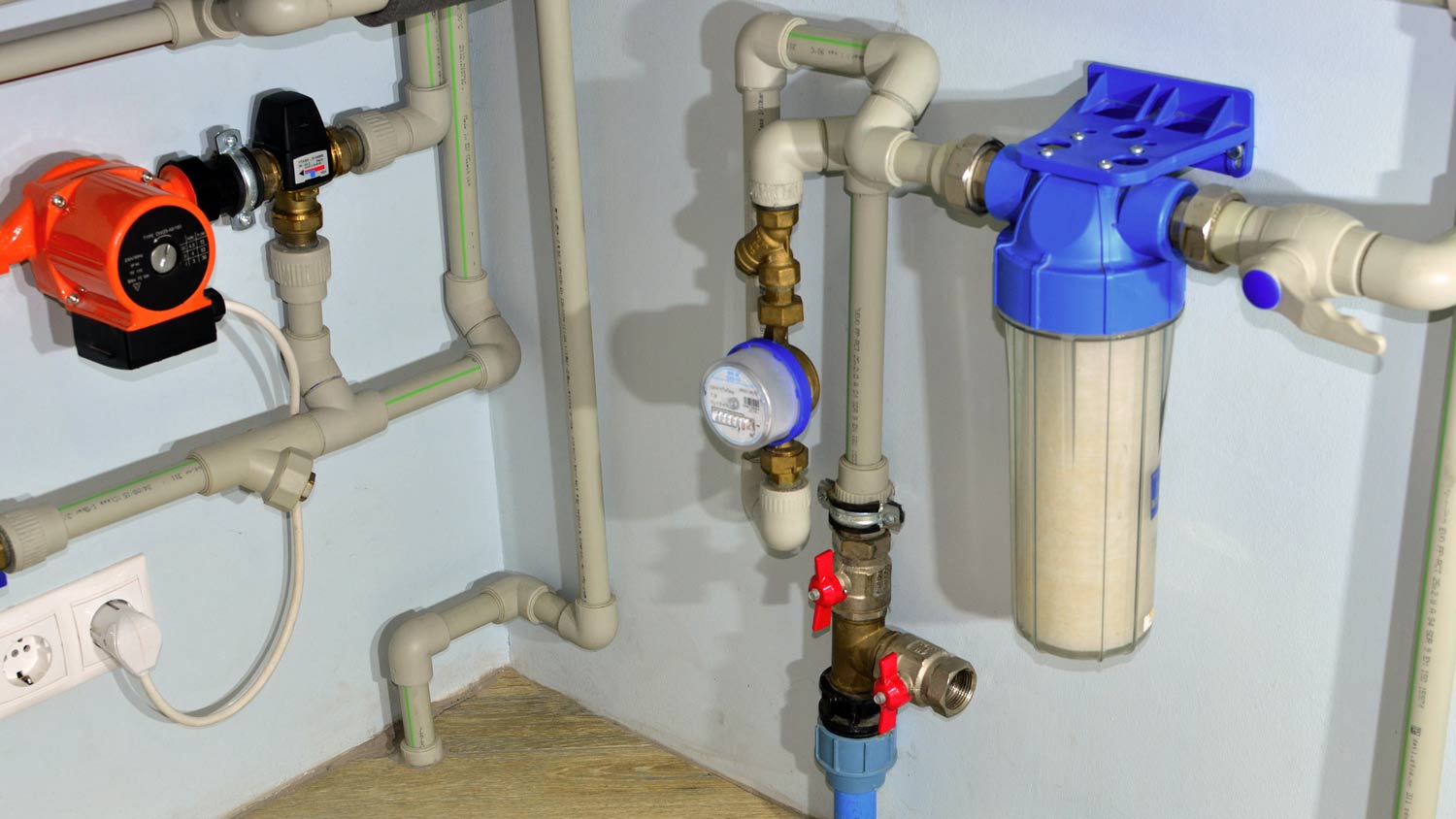
Water softeners and whole-house filters can both decrease the amount of scale that pops up on your appliances, dishes, and shower walls. However, water softeners may not work for every household, and whole-house filters may be too costly for some.
Whole-house water filters are the most thorough and robust water filtration systems available, and they work more efficiently than point-of-use systems (like ones that only connect to your kitchen sink). Pros install whole-house water filters in the water main so that they affect your entire home, from drinking water to bath water to the water in your garden hoses and washing machine.
A filter can decrease the amount of scale buildup on your appliances and belongings while removing harmful substances from the water, making your drinking water taste better. Many whole-house water filters contain anti-scale water filtration technology that prevents pipe and appliance inefficiencies, too. With a whole-home system, all the water that enters your home, no matter where it comes out, runs through a powerful system that removes hard minerals and decreases the ones that cause scale.
Water softener systems are not as big of an investment as whole-house filtration systems, but they do have chemistry-based limitations. Depending on the composition of the water supply where you live, the system may remove some scale from the water with ease or barely make an impact on it. Overall, softeners do not remove scale-causing substances as well as filters do.
There are DIY water softener options that fit under the sink, over the tap, or over shower heads as budget-friendly alternatives to a whole-house system, but they don’t prevent the problem at the source. These systems often require calling a local water softener installation company. They can also help you install a whole-house water filter.
A water softener may reduce some contaminants in your water, but it is not meant to be a replacement for robust contaminant reduction offered by water filters.
A whole-house water filtration system costs $1,100 to $3,500. Comparatively, a water softener system cost $1,500 on average. This makes water softener systems a more budget-friendly solution for removing scale, although a whole-house water filter is the most effective at removing scale and other contaminants.
From average costs to expert advice, get all the answers you need to get your job done.

Discover how much well water treatment systems cost, including installation, maintenance, and tips to save. Get expert insights to plan your water system project.
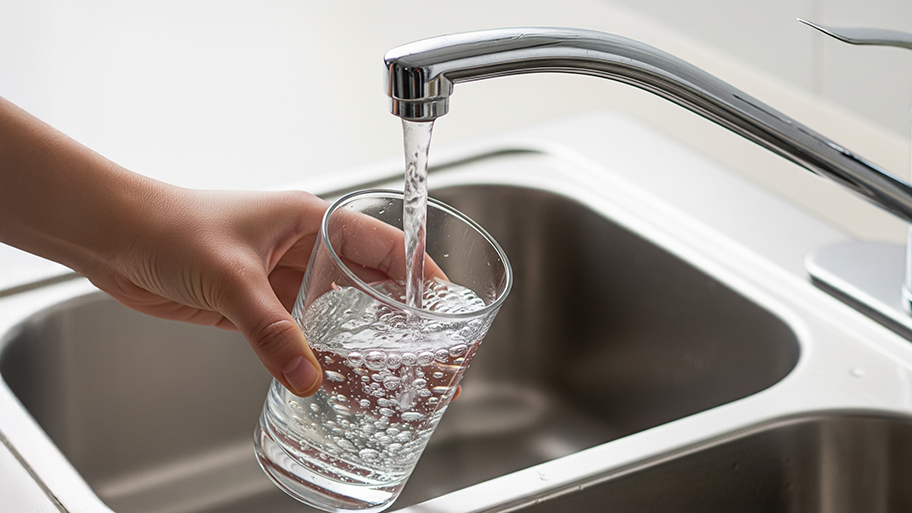
On average, a reverse osmosis water filter costs around $2,200, but there are a few variables that impact the total price. Learn about them in this guide.
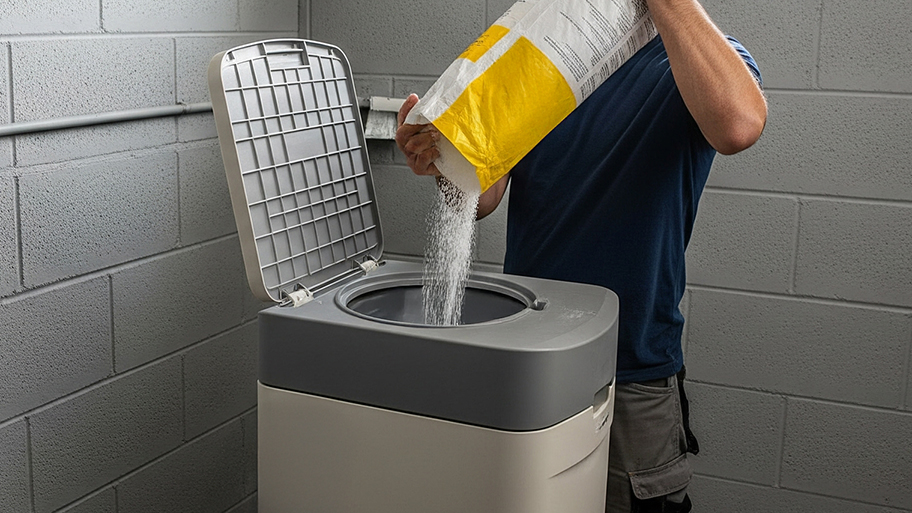
How much a water softener costs depends on your home’s size, and the system’s type and capacity. Our expert guide explores all the price factors.

If you're worried that calcium buildup is causing your pipes to corrode, you need to learn about DIY and professional ways to remove calcium buildup in pipes before something major happens.

What is hard water? It contains high levels of minerals that dry skin and hair, stain dishes and clothes, and limit the life span of plumbing and appliances.

Trying to decide between the different types of water softeners? Our guide will help you choose the right salt-based or salt-free option for your home.